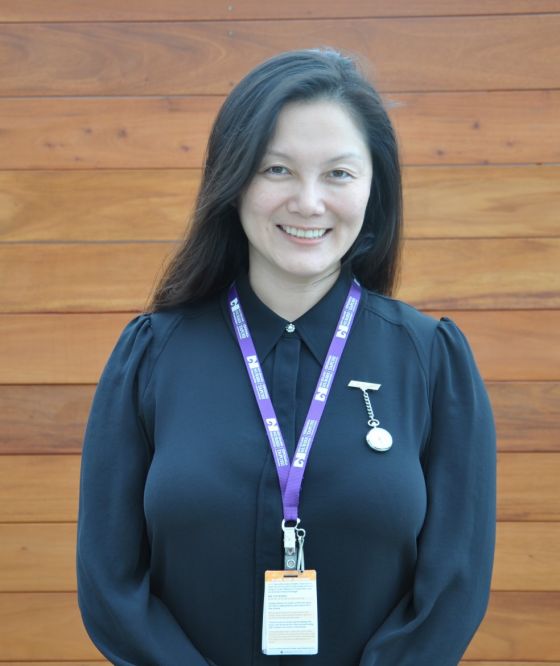 Jiajia Chen has a passion for supporting people with their mental health and wellbeing and has spent her career doing just that.
Jiajia Chen has a passion for supporting people with their mental health and wellbeing and has spent her career doing just that.
Jiajia is a Clinical Nurse Specialist in the Intervention Support and Prevention team (ISPT) at Auckland Region Women’s Corrections Facility (ARWCF). She has been with Corrections for a little over a year and already feels a strong connection to the work.
Previously, she worked for 13 years in the district health board (DHB) in a variety of roles in acute and community mental health nursing and providing clinical tutoring at universities. Starting work at ARWCF was a change of environment to what she was used to.
“Working at ARWCF is like working in a small community, you get to spend time doing face to face triage, assessment and providing treatment but you are also part of a wider support team for the patient,” says Jiajia.
She notes that this includes working with corrections officers, health centre staff and anyone else involved in the support of a patient such as a chaplain or external provider like DHBs and non-government organisations.
“We work together to work out a plan to support the person– so the work is very different every day.”
The ISPT was setup in early 2017 and was designed to specifically help people in prison who are vulnerable to self-harm or suicidal thoughts. The ISPT consists of mental health professionals from a range of disciplines.
“Before our team started, there wasn’t a Corrections-operated dedicated mental health service within our facility, so it has been exciting to be a part of it and see the changes unfold,” says Jiajia.
The ISPT allowed Jiajia to shift her focus from addressing acute mental health to concentrate on prevention and overall wellbeing.
“Although I’ve only been here a short time, I have noticed that there is an evolving operational focus on mental health and wellbeing, which has positive impacts on the people we care for.”
“It is gratifying to witness the custodial space endorsing trauma-informed practices and committing to learning and bettering practice to cater for people with mental health needs.”
Jiajia explains that although the team initially came on board to work with vulnerable people, it was quickly realised that the need for mental health support is so huge that the team’s purpose has evolved to be more of a broader focus on mental health in this special community setting.
“Every day is about fostering growth. If I can make a difference and see a change in someone’s trajectory then it is incredibly rewarding. I see hope in the work that I do and that keeps me coming back to work each day.”

